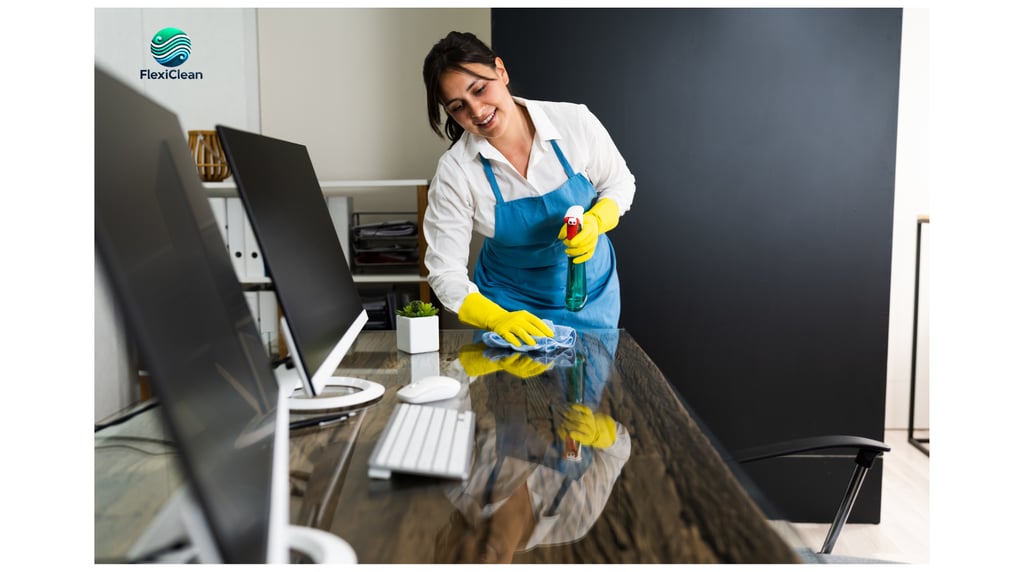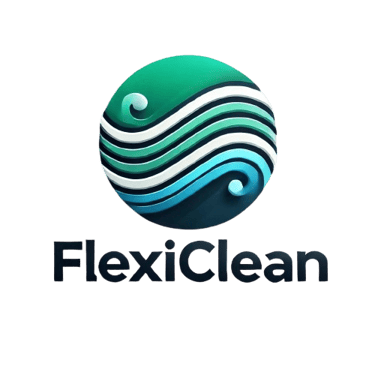Why First Impressions Matter: How Cleanliness Builds (or Breaks) Client Trust in Office Spaces.
Discover how your office environment silently communicates trust, professionalism, and attention to detail, and how cleanliness can either elevate your brand or silently erode client confidence.
COMMERCIAL CLEANING
FlexiClean Editorial Team
7/2/20253 min read


Why First Impressions Matter: How Cleanliness Builds (or Breaks) Client Trust in Office Spaces.
What does your office smell like?
That’s not a question most business owners expect — and yet, it’s one that clients answer before you say a word.
The brain processes sensory information — sight, smell, even temperature — long before logic kicks in. And within seconds, your space is already speaking for you.
It’s either saying “we care,” or “we cut corners.”
Let’s go deeper.
The Neuroscience of Clean Spaces: Trust Begins Before You Speak.
A study published in Psychological Science (Ambady & Rosenthal, 1993) showed that humans form lasting judgments about others — and their environments — in less than 7 seconds. But what’s more fascinating is how we do it.
We’re not just scanning for visual order.
We’re subconsciously asking:
Is this place safe?
Is this brand meticulous?
Can I trust this team with my money, my case, my time?
A smudged glass door, dusty baseboard, or faint restroom odor doesn’t register as “just dirt.”
It registers as:
“If they overlook this... what else are they overlooking?”
The Symbolic Power of Cleanliness.
Cleanliness is more than hygiene — it’s a symbol.
In business psychology, your environment is considered a “nonverbal extension of your values.”
According to behavioral economist Dan Ariely, people place higher trust in brands that display consistency and attention to small details, because those micro-signals tell the brain: "they notice things before they become problems."
So when a client walks into your office:
Is the floor free of debris?
Are the windows clear and fingerprint-free?
Does the room smell like freshness or forgotten maintenance?
These cues don’t just impress — they anchor your credibility.
Cleanliness = Brand Integrity (Here’s Why).
A 2021 study by ISSA (Worldwide Cleaning Association) found that:
92% of consumers said a dirty workplace would make them think less of the company’s services.
1 in 3 said it would immediately discourage them from returning, even if the service was good.
This isn't about being "neat freaks" — it's about subconscious risk perception.
If you run a law office, a medical clinic, a financial firm, or even a high-end spa, your space needs to match the promises your brand makes.
Otherwise, your cleanliness becomes a contradiction.
Real-Life Triggers Clients Notice (Without Realizing It).
People rarely walk out saying, “I left because the baseboard was dusty.”
But here’s what happens:
What They See What They Think Smudges on glass“They don’t double-check details.”Dirty grout or floor corners: “Maintenance isn’t a priority here.”Unpleasant bathroom odor. “This feels careless.”Dust on desk legs. “If they ignore this, what else slips?”
Even artfully designed offices lose their edge when layered with silent signs of neglect.
High-Impact Micro-Actions That Build Trust.
You don’t need a renovation to shift perception — just intentional maintenance.
Here are client-trust-building cleaning habits you can apply starting today:
🔹 For reception areas:
Use a microfiber cloth daily on entry handles and welcome counters
Keep aromatics light, natural, and aligned with your brand
(eucalyptus = clinical; citrus = energy)
Vacuum behind furniture weekly — clients with sharp eyes will notice.
🔹 For bathrooms:
Mid-day check-ins (not just morning cleanings)
Replace generic air fresheners with discreet scent diffusers
Install soft lighting — it makes even small bathrooms feel intentional.
🔹 For meeting rooms:
Wipe fingerprints off screens and remote controls
Check chairs and table undersides monthly — crumbs or tape are trust killers
Ensure pens, notepads, and shared items are pristine or replaced frequently
Pro tip: Create a silent "pre-client checklist" before every key meeting. It’s not for cleanliness — it’s for confidence.
Clean Spaces, Clear Minds (and Better Decisions).
A study in the Journal of Environmental Psychology (2014) found that people exposed to clean, well-lit environments were more likely to engage in thoughtful decision-making and report greater satisfaction with interactions.
Translation?
When your clients feel at ease, they listen better. Trust deeper. Sign faster.
And your team?
They show up prouder, take more ownership, and feel respected by the very space they work in.
Florida Office Culture: Environmental Factors You Can’t Ignore.
In coastal regions like Destin, Miramar Beach, and Fort Walton Beach, business owners face unique challenges:
Humidity leads to mold in forgotten corners.
Sand builds up in carpets, chair wheels, and bathroom grout.
Closed-air HVAC systems recycle odor, dust, and allergens quickly in tight office layouts.
This means that your space may look fine on Monday… and already feel neglected by Friday.
Regular wipe-downs and weekly deep checks are not extras — they’re strategic tools.
Final Thoughts.
Your workspace is a mirror.
It reflects how your business sees itself — and how it values the people it serves.
A clean office is not about perfection.
It’s about intention. And in the quiet moments — before the handshake, before the proposal, before the pitch — your office already spoke.
What did it say?
At FlexiClean, we help companies align their physical space with the message they want to send:
“We notice. We care. We’re ready for you.”
Because trust doesn't begin at the table — it begins at the door.
Serving Destin, Fort Walton Beach, Miramar Beach, Niceville, and beyond.
References (Cited and Verified)
Ambady, N., & Rosenthal, R. (1993). Thin Slices of Expressive Behavior as Predictors of Interpersonal Consequences. Psychological Bulletin.
ISSA Cleaning Survey (2021). Impact of Cleanliness on Consumer Behavior.
Harvard Business Review (2019). Workplace Cleanliness and Performance.
Journal of Environmental Psychology (2014). The Effects of Physical Environment on Decision-Making Behavior.
